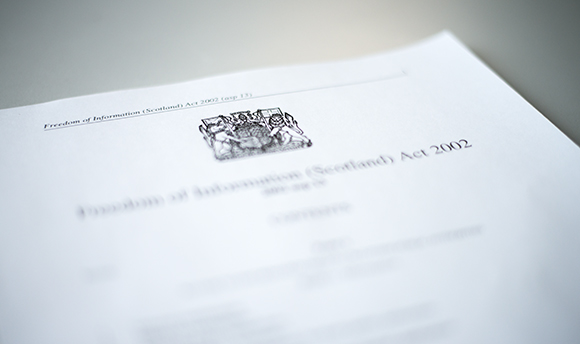QMU Guidelines for Periodic Review of Professional Services
1.0 Introduction
It is an expectation of the Scottish Funding Council that all universities review all aspects of provision on a cycle of no more than six years. The following guidelines set out the process for professional services review at QMU. The mechanism for review of academic programmes remains the five yearly internal subject review process, full details of which are available at the Validation and Review pages of our website.
Professional service review is intended to complement, build on and synthesise existing mechanisms for evaluating the effectiveness of our services.
1.1 Review schedule and scope
The review schedule for the period noted below incorporates student facing professional services/services contributing to the quality of the student experience as determined by the University’s Student Experience Committee. The timescale for review is influenced by internal and external factors, including changes to the context within which the service is operating. The University will establish a five-year review schedule, but from time to time, the Student Experience Committee may also initiate a cross-cutting thematic review, involving more than one service. The process for any such review will broadly follow these guidelines and be confirmed by the Student Experience Committee at the time of determining the review focus.
| Year | Service |
|---|---|
| 2023-24 |
Library Services |
|
2024-25 |
Admissions |
|
2025-26 |
IT |
|
2026-27 |
Student Services (aggregation of services tbc) |
|
2027-28 |
Registry and Academic Administration (tbc) |
1.2 Aims of professional services review
The aims of the professional services review process are to:
- Provide staff of the professional service with an opportunity to reflect on its operation, successes, and challenges, since the most recent review.
- Evaluate the extent to which provision meets the needs of identified stakeholders, typically including staff and students.
- Evaluate the ways in which the service gathers feedback to monitor and improve the quality of provision.
- Evaluate the contribution of the activities of the professional service to institutional strategic objectives.
- Identify areas for enhancement and monitor action taken in response.
- Identify examples of good practice for commendation and dissemination.
It is intended that the process should be positive and constructive, facilitating high quality debate and agreement.
Staff from the professional service area will have the opportunity to participate in the review process through preparation for the review meeting, participation in discussions with the review panel or both. Note that it is not within the remit of the panel to set conditions for the area under review. However, there is an expectation that the staff from the area under consideration will respond appropriately to the findings of the review.
2.0 The review process
The process for review will be as set out below. There will be some scope for flexibility to accommodate the different types of professional service area.
2.1 Overview
The review process comprises the following key elements:
- Submission of self-evaluation document by the area under review.
- Review meeting comprising discussions with staff of the area under consideration, principal service users, including staff, students, and external stakeholders, as appropriate.
- Written report and recommendations submitted to the Student Experience Committee and/or other relevant senior committee(s), as appropriate.
- Implementation of actions as appropriate.
2.2 Timescale
Approximately six months prior to the date of the review staff of the area under consideration will start on the preparation of the self-evaluation documentation. Staff from the Division of Governance and Quality Enhancement will provide support and guidance throughout this process. The self-evaluation document must be submitted to the Division of Governance and Quality Enhancement no later than four weeks before the confirmed review meeting date.
Members of the review panel will be invited to submit initial feedback, usually no later than one week before the meeting. This will be provided to the head of professional service to support the team with their preparations for the review meeting. A confirmed report of the review outcome will be available no later than four weeks after the review meeting, and a report will be submitted to the next scheduled meeting of the Student Experience Committee, and/or other senior committee(s), as appropriate. A date for a response to the review outcomes will be advised in the report. In the case of professional services review, it is expected that the service will report on progress as part of the strategic/operational planning process.
2.3 Documentation
The self-evaluation document template has been designed to ensure all key points are covered and streamline the process for participating services. The template headings address the following (with some flexibility depending on the scope of the review). It is expected that the template will be around 15 to 20 pages in total (excluding appendices).
Staff from the Division of Governance and Enhancement will provide support to all services participating in the process. An exemplar template is also available.
Introduction and overview
- The overall function of the professional service or thematic area.
- The full range of activities subsumed within its areas of responsibility.
- The position of the area within the University’s structure.
- The development of the area since the most recent review (where applicable).
Service area evaluation and action plan
- The overall function of the professional service.
- The activities subsumed within its areas of responsibility.
- The position of the service within the University’s structure.
- Information on current priorities for the service, including how these are agreed and reviewed.
- A summary of ways in which the service gathers and evaluates feedback from students and other stakeholders.
- A reflective statement on the impact of the area’s activities on the student learning experience.
- Future development plans.
Conclusion
A summary of key points the service would wish to highlight to the panel, including:
- Aspects of provision that are working particularly well and might usefully be shared with others.
- Aspects of provision that are evolving and subject to further development.
Appendices
- The most recent operational plan for the area
- External accreditation reports or other measures of esteem (where applicable).
- Any internal reports prepared to support external accreditation processes.
- A summary of any recent feedback from students and other stakeholders.
- Diagram of organisational structure.
- A list of current staff.
2.4 Review panel meeting
The review panel meetings will normally be scheduled for a half day with the following outline structure:
- Private meeting of panel (to agree key themes for discussion with staff of the area under consideration).
- Meeting with staff of the area under consideration.
- Meeting(s) with service users as appropriate (typically academic staff and students).
- Private meeting of panel (to agree recommended actions and commendations).
- Feedback to staff of the area under consideration.
The review secretary will be appointed by the Vice-Principal & University Secretary and will be responsible for making all necessary arrangements for the meeting.
2.5 Review report
A summary review report detailing key actions recommended by the panel and aspects of good practice identified through the process will be prepared within 48 hours of the review meeting. This will be circulated for approval to all members of the panel. Once agreed by the review panel, the head of the professional service, or other identified person in the case of thematic review will be invited to comment on any factual inaccuracies after which the summary report will be confirmed. A full review report recording the discussion leading up to the summary conclusion will be prepared no later than four weeks after the meeting and circulated for approval to members of the review panel. Once agreed by the review panel, the head of the professional service will be invited to comment on any factual inaccuracies after which the report will be confirmed.
2.6 Committee consideration of the report
The review report will be considered by the Student Experience Committee (and/or other relevant senior committee(s), as agreed with the Deputy Principal and the Vice-Principal and University Secretary) at the earliest opportunity after the review meeting. Committee members will consider the recommended actions and ways in which the area might be supported to further enhance the quality of provision, and in particular its impact on the student experience. The Committee will also note any examples of good practice recorded in the report and consider how best these might be shared with colleagues across the University.
2.7 Response to the review
Staff of the area under consideration will be invited to provide a response to the recommendations of the panel, highlighting any actions taken or planned in response to recommendations. This will be considered by the Student Experience Committee. The Student Experience Committee will normally request follow-up reports at an agreed frequency and for an identified period of time. This will vary according to the professional service and nature of recommendations.
3.0 Review panel membership
The composition of the review panel will normally be:
Convener: Head of a University professional service area
Internal panel members:
- Two members of professional services staff
- One member of academic staff
- One student panellist usually to be drawn from the SU pool of reviewers
External panel members: One external panel member from another University or other relevant background in the area of expertise that is being reviewed.
Secretary: A member of staff from the Division of Governance and Quality Enhancement
Nominations for panel members will be approved by the Vice-Principal & University Secretary.


